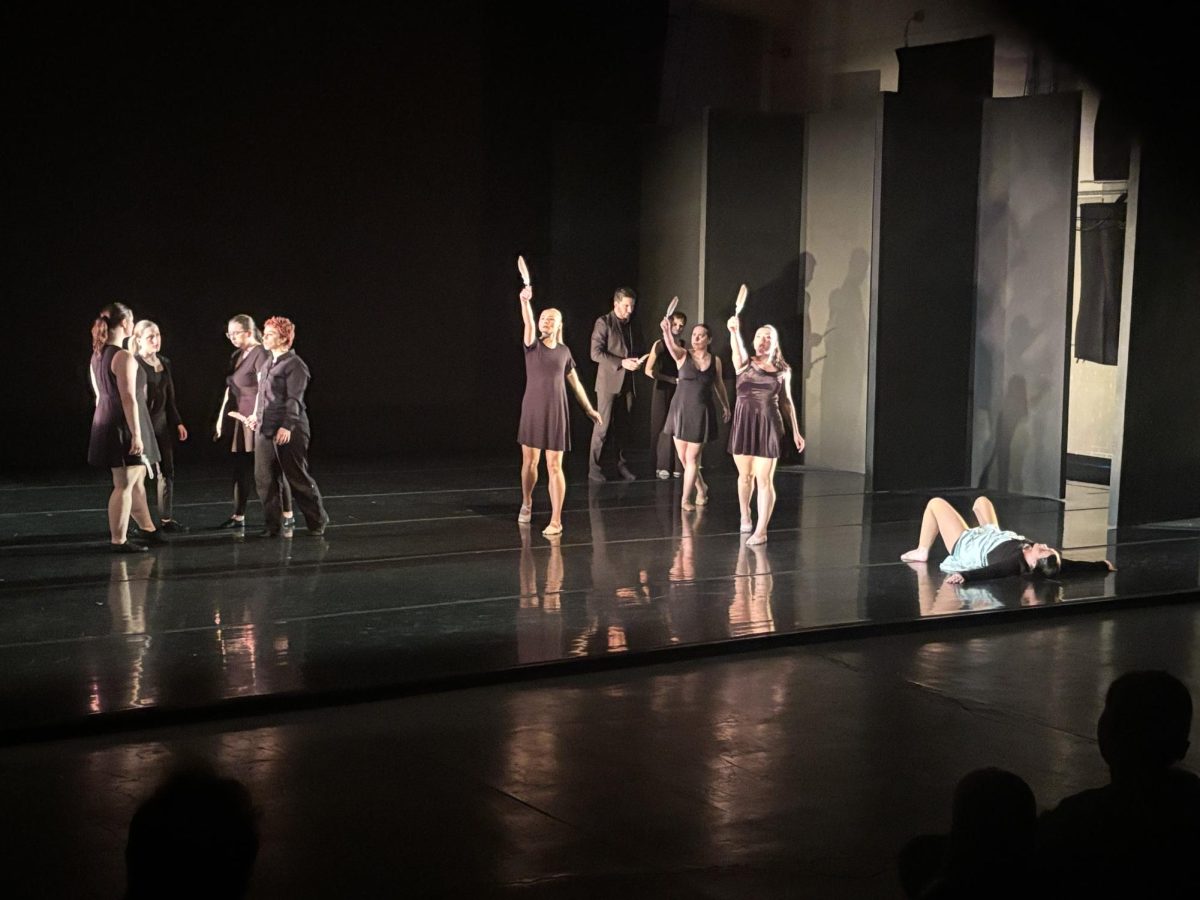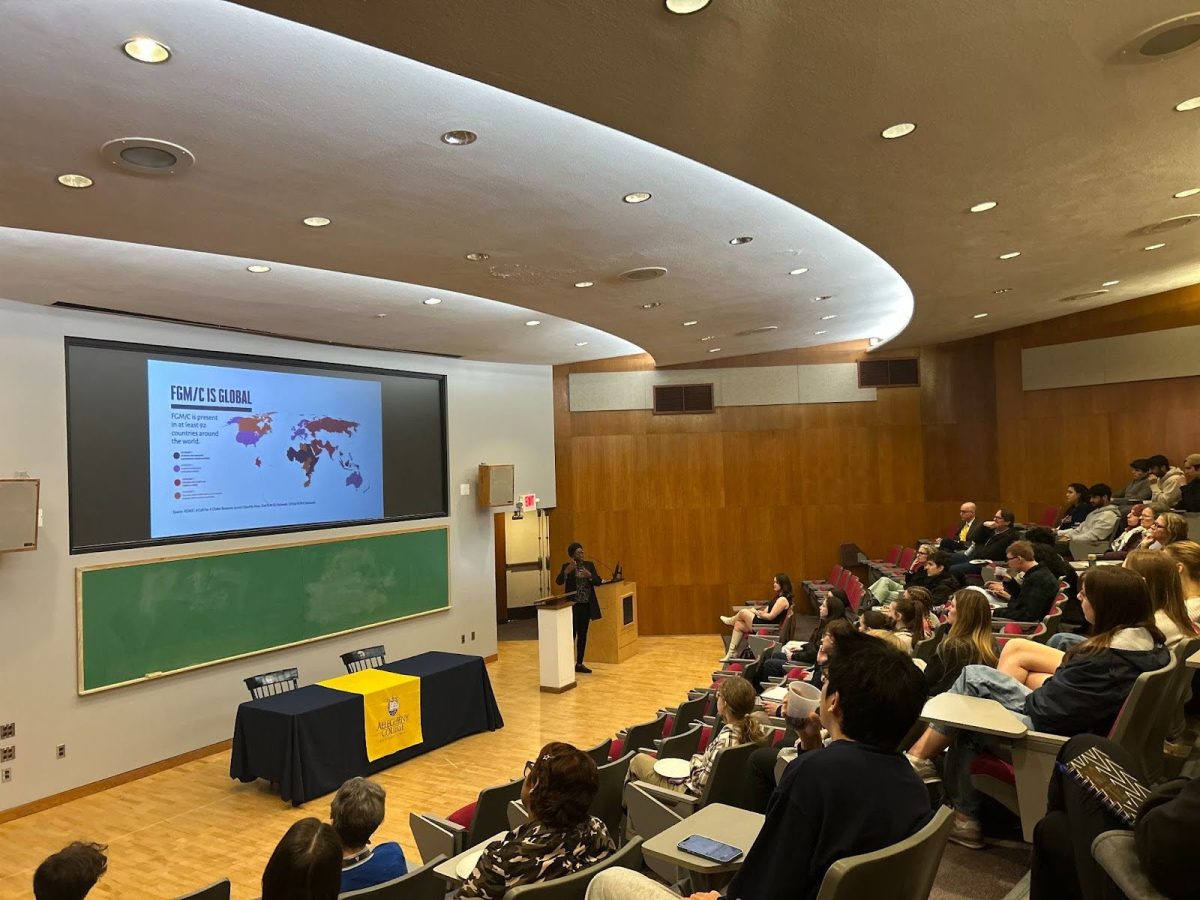
Can Blaxploitation exist in a world where gigantic afros are no longer stylish?
Despite all odds, yes. Robert Rodriguez modernizes the 70s art form with his film “Machete” by swapping one rather stagnant race relation with a particularly poignant issue.
Replace the barbershop and disco clubs with a taco stand and day laborer pick–up spot.
Move the back–alley beatings from the mean streets to the Mexico-Texas border.
The slur–spitting racists remain, obviously, but the means of dealing with them changes. Stylish kung–fu is swapped with stylized decapitation using seemingly every gardening tool in the shed.
And while it might be smart to apply
a new name tag, (Mexploitation?) “Machete” does not reinvent the wheel. Rodriguez isn’t even in the business of parody, unlike last year’s “Black Dynamite.” No, this film is homage to its source material, complete with the highs and lows of miming a dead genre.
As a rule, Blaxploitation films deal with political and race issues, but the lesson is repeatedly harped upon with no regard for subtlety and style. “Machete” uses the same technique with varying levels of tongue–in–cheek dialogue. With no resolution to immigration or White-Latino race relation in sight; however, Rodriguez’s sarcasm is more grating than funny.
Or maybe it’s just not funny because the rest of the movie erupts with as much humor as blood. Some is understated and clever, like “introducing” 80s star Don Johnson in the opening credits.
But most of the jokes come from the absolutely ludicrous and tasteless action and sex, sequences that have long marked Rodriguez’s work. The character Machete (Danny Trejo) is an ex-”Federale” (described in the film as the “CIA, FBI, and Green Beret all rolled into one mean enchilada”) who lops off human extremities. And yet he also finds time to successfully romance every lady that appears on screen. Nothing is sacred, quite literally — crucifixion even plays a part in the plot.
Plot, by the way, is neither necessary nor existent in the film. If you can remember that white people are bad and Machete kills people with machetes, you’ve got the story.
Trejo is fantastic as the silent hero, but the supporting cast steals the show. Robert DeNiro plays a corrupt state legislator with inspired mock political ads. Cheech Martin gets laughs as Machete’s brother and a reformed shotgun killer imitating a priest. And Jeff Fahey (Lapidus, if you recall the “LOST” pilot episode) is as remarkably slimy as the incestuous, double–crosser Booth.
If anyone disappoints, it’s the ladies. Jessica Alba and Michelle Rodriguez are just sex objects, despite seeing plenty of screen time. Lindsay Lohan is even worse as Booth’s cracked-out daughter; her casting feels like a gimmick to get some A-list boobs into the movie.
After the immigrant’s army rolls out with brightly painted Caddy low–riders, fully equipped with bouncing hydraulics and miniguns, Rodriguez has pushed the joke as far as it can go.
“Machete” is truly the first, last, and greatest film in a genre that can’t last because, well, there’s simply no Latino stereotypes left to chop off. Four out of five stars.
Did you know?
10.) Hip–hop duo, Camp Lo often title their tracks with Blaxploitation film names.
9). The NAACP publicly hated on the genre as black–on–black racism.
8.) If your brother gets murdered, chances are you’d make a great hero/heroine.
7.) “Super Fly,” with a mean funk soundtrack by Curtis Mayfield, is considered the genre’s magnum opus.
6.) If you grew up on Blaxploitation, you’d probably hate white people — especially the police.
5.) Spike Lee and “Boyz in the Hood” killed the genre by proving race relations, film and success mix.
4.) In some films heroes/heroines fight the pimps and dealers to clean up the hood.
3.) In others heroes/heroines fight the police and politicians to clean up the hood.
2.) Top three titles: “Blacula,” “Sweet Sweetback’s Baadasssss Song,” and “Disco Godfather”
1.) The hero always gets the girl — well, girls.




